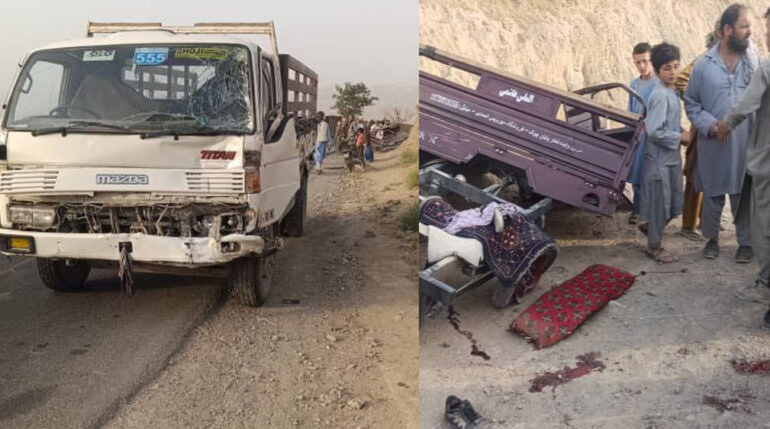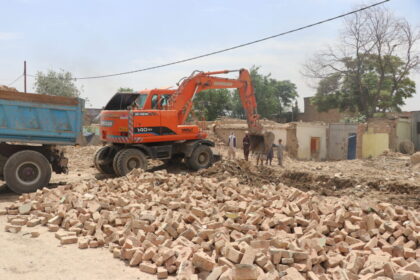RASC News Agency: A fatal traffic collision in Afghanistan’s northeastern Badakhshan province has left at least four people dead and two others seriously injured. Local sources report that the incident occurred along the critical Kishm -Fayzabad highway when a cargo truck collided with a three-wheeled “Zaranj” vehicle carrying passengers. The Taliban’s provincial police command in Badakhshan issued a brief statement confirming the incident, noting that the crash took place on Sunday evening in the area known as “Madaba Checkpoint.” The statement added that all casualties were passengers in the three-wheeled vehicle, with no injuries reported from the truck.
According to local security officials, the injured individuals were swiftly transported to nearby health centers, though medical staff have described their condition as critical. Taliban-appointed officials in the province claimed that an investigation into the cause of the crash is ongoing. However, preliminary reports point to driver negligence and non-compliance with basic traffic laws issues that have plagued Afghanistan’s roads for years. Despite the global media’s focus on bombings, insurgent attacks, and targeted killings in Afghanistan, traffic accidents remain one of the most deadly, yet underreported, causes of civilian deaths. After landmines and suspicious assassinations, road accidents consistently rank as the third-leading cause of non-combat civilian fatalities in the country.
Unofficial estimates suggest that hundreds of civilians die each year in road-related incidents across Afghanistan. Experts attribute the rising toll to a combination of factors, including deteriorating road infrastructure, the absence of warning signs, ineffective oversight of traffic regulations, and the poor training of drivers an area that has seen no serious reform under Taliban governance. While the Taliban claims to maintain order, the regime has shown little initiative in addressing the escalating transportation crisis. Decades of war, followed by the group’s return to power, have further eroded institutional capacity to manage public safety, especially in remote and mountainous provinces like Badakhshan. The lack of investment in public infrastructure and an almost complete absence of civilian oversight have compounded the risks for ordinary travelers.
Public safety analysts warn that although Afghanistan continues to face a litany of acute security threats, the silent epidemic of road traffic fatalities is emerging as a social crisis of its own. Without urgent reforms, experts fear that more lives will be lost not to bullets or bombs but to the crumbling roads and institutional neglect that now define daily life under Taliban rule.






